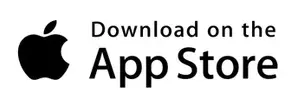Identifying The Value Of Predictive Oncology Inc.’s Oncology Biobank In this Global Drug Discovery Market
Predictive Oncology Inc. (NASDAQ:POAI)
ATLANTA, GA, US, December 19, 2022 /EINPresswire.com/ — The global drug discovery market is significantly driven by the rising prevalence of various chronic diseases, rising healthcare expenditures, and limited patent life of certain branded drugs across the globe. The global population is facing a growing burden of various diseases such as cardiovascular diseases, diabetes, respiratory diseases, neurological disorders, and cancer.
Cancer is the second leading cause of death in the United States alone. More than 1.7 million people are diagnosed with cancer each year, nearly 600,000 will die and at least $185 billion is spent each year to care for these patients. Competition to develop drugs to treat these patients is aggressive.
More to the point, the global personalized medicine market size was valued at USD 514.33 billion in 2021 and is expected to expand at a compound annual growth rate (CAGR) of 6.95% from 2022 to 2030. The growth is attributed to factors such as the increasing demand for novel drug discovery to combat the rising incidence of cancers globally. The global market for Oncology Precision Medicine, alone, was estimated to be worth $49.4 billion in 2021, and it is expected to reach $ 124.84 billion by 2030, expanding at a CAGR of 10.85% from 2021 to 2030.
Indicative of this trend, Roche (OTCMKTS: RHHBY) was forced to contend with an ongoing biosimilar attack on three top cancer medications, the end result being a 4.5 billion Swiss franc hit to global sales during that year. Despite that hit, the company’s pharma division managed to grow sales by 3% over the previous year, primarily because of their pipeline of new drugs.
It is no accident, therefore, that in June of 2018, Roche announced it had finalized the acquisition of Foundation Medicine, Inc., a move to further bolster their stockpile of subsidiaries striving for a personalized healthcare strategy. This deal came just months after the acquisition of Flatiron Health. Flatiron’s key asset is its ability to access data from a plethora of sources and to analyze that information to make meaningful clinical decision and recommendations. The Flatiron platform captures and normalizes both structured and unstructured oncology data then, using analytics, derives relevant insights from that data. The end result of this process is to expedite cancer drug utility and to save billions of dollars in drug development and healthcare costs.
So the question is this; why would a biopharmaceutical company invest the equivalent of 20% of the total global market for the acquisition of these companies, and what does that say about their strategy and future direction of drug discovery and development?
The facts are these; Roche is the single largest developer of cancer drugs in the world. They have now invested in building capacity in pharmaceutical R&D, the application of expansive healthcare software that can be deployed to provide real world data for oncology therapeutics, including the integration of a comprehensive genomic profiling technology. The acquisition of these assets seems to imply that, as a global leader in the tailored approach to cancer therapy, Roche has taken the necessary steps to position themselves at the forefront of innovation in this sector.
While this is an enormous win for patients in terms of a personalized approach to therapy and providing optimal outcomes, there is also huge foresight in terms of drug discovery and development for Roche. Research and development remains the most significant commitment and expenditure for pharmaceutical companies, dwarfing almost every other operational expense.
In effect Roche — and all of biopharma — are maximizing spending power when it comes to research, discovery, and development of innovative approaches to pipeline development. Expanding further, this streamlined process can be applied to any therapeutics market and not only relegated to the oncology space. This technology can be a cost-saver across the entire pharmaceutical industry, not to mention its applications in drug repurposing and therapeutics with expiring patents in the future.
Not unlike Roche, Foundation Medicine and Flatiron Health, the mission of Predictive Oncology (NASDAQ: POAI) is to change the landscape of oncology drug discovery and enable the development of more effective therapies for the treatment of cancer. By harnessing the power of machine learning, scientific rigor and biologics, the company is well-positioned to improve the probability of success and advance drug compounds with a higher degree of confidence and accuracy.
To do that, Predictive Oncology pairs its proprietary artificial intelligence platform (PEDAL) with access to the world’s largest privately held biobank of 150,000 tumor samples from 137 cancer types. Moreover, PEDAL leverages incomplete data and efficiently picks the best new data needed to make drug response predictions and optimizes the drug development process by efficiently introducing tumor heterogeneity at pre-clinical stages. Using PEDAL, orphaned, abandoned, or failed drug compounds can be repurposed through new evaluation in additional tumor types.
In terms of value, Predictive Oncology is certainly worth more than the sum of its parts. Objectively speaking, the value of the biobank as a stand-alone asset is worth in excess of $400 million, but collectively this company offers a cost and time effective discovery process to the biopharma industry across the continuum of drug discovery through drug development; from preclinical, to 3D models and GMP formulation services. Furthermore, Roche, as well as other companies such as Absci Corporation (Nasdaq: ABSI) and Evotec SE (Nasdaq: EVO), can benefit from the tremendous value Predictive Oncology has with its biobank and drug discovery capabilities.
To further strengthen and support the company’s strategic initiatives and commercialization efforts, Predictive Oncology recently appointed Matthew J. Hawryluk PH.D. the Board of Directors.
Nathan Culotta
Landon Capital
+1 404-995-6671
email us here
Visit us on social media:
Twitter
LinkedIn



